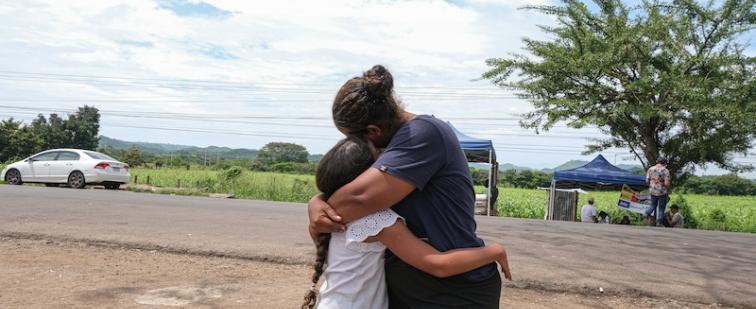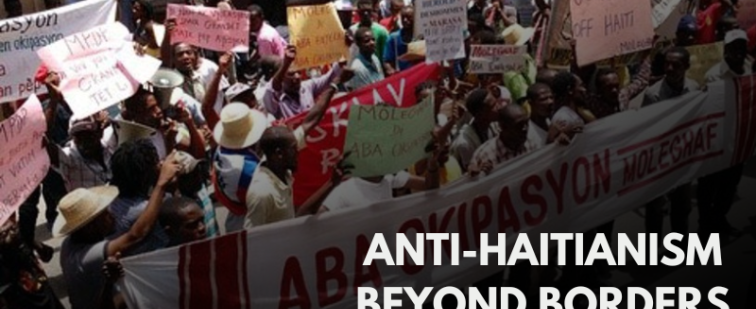Home
Although some Venezuelan opposition groups are still in denial over Hugo Chávez's victory in his campaign to eliminate term limits, others have tried to regain their footing. A few distinct tendencies have become visible: from re-engagement with the political process and an attempt to broaden appeal, to a more thorough self-analysis and a recognition of the need to address poverty and inequality. The direction taken by the opposition could well determine the future of the Bolivarian Revolution.
Voters in El Salvador took the first step on March 15 toward turning the tide against 130 years of conservative rule over the country by electing Mauricio Funes of the leftist Farabundo Martí National Liberation Front (FMLN) party as president. The FMLN's resilience and persistence has finally paid off. But after nearly three decades of struggle – on the battlefield, in the streets, and at the ballot box – the political forces that make up the FMLN now face perhaps their greatest challenge: governing.
Alan Knight, a specialist on the Mexican Revolution, once wrote, “Revolutionary generations die, but the legacy of (especially successful) revolutions is never entirely spent." In this interview, he discusses revolutionary icons, the competing claims to revolutionary legitimacy by contemporary political actors, and official amnesia over tensions within the revolution, among other topics.
Generating enough electricity to power a small city while offsetting several hundred thousand tons of carbon emissions sounds like an ideal source of eco-friendly energy. But tell that to the residents of La Ventosa in Oaxaca, Mexico. The construction of Latin America's largest wind farm on these communal campesino lands in the wind-whipped Isthmus of Tehuantepec is threatening their lands and their livelihoods.
In both Cuba and Venezuela, the revolutionary imagination has been free to develop in the domain of culture, preserving the legacy of struggle and serving as the social conscience of leftist governments. This legacy of struggle has been preserved and passed down, keeping alive alternative visions for social justice.
In an attempt to deter Mexican immigrants from crossing the border, the Border Patrol has released a music album titled, "Migracorridos." The corrido is a genre of Mexican folk ballads popular in the border region that frequently celebrates the exploits of outlaws and rebels. But like past campaigns, the Border Patrol's new musical initiative fails to address issues of safety and human rights along the U.S.-Mexico border.
The FMLN's Mauricio Funes declared victory at 9:30 last night. His challenger from the incumbent, far-right ARENA party conceded defeat a few hours later, bringing an end to 20 years of one-party rule. Funes will become El Salvador's first leftist head of state in the country's history.The essence of Funes’ campaign slogan, “hope is born,” could be felt throughout the country yesterday, with massive voter turnout reported from the metropolis of San Salvador to rural villages in the outlying departments.
The Ecuadoran government recently withdrew the legal status of the well-respected Acción Ecológica, a local environmental group. The organization has been highly critical of the Correa administration's environmental policies, particularly a government-backed mining law reform. For 20 years, the group has worked closely with indigenous movement and the communities directly affected by mining and oil exploitation. Activist-writer Naomi Klein wrote the President an open letter in support of Acción Ecológica.
In a repeat of interventionist statements by U.S. officials made during El Salvador's 2004 elections, congressional Republicans have once again openly threatened Salvadoran voters from the floor of the House by claiming Washington would have to review its polices on "cash remittances and immigration" should the FMLN win Sunday's election. One congressman even ridiculously referred to the opposition as the "pro-terrorist FMLN party." Please take action.
Commemorating International Women's Day, thousands of landless women engaged in protests across Brazil. Several of the protests targeted large eucalyptus plantations for pulp production, as part of a renewed effort by the Landless Workers' Movement (MST) and Vía Campesina to fight against multinational agribusiness corporations. As activists turn the screws on agribusiness, state repression against the landless movement has also increased.












